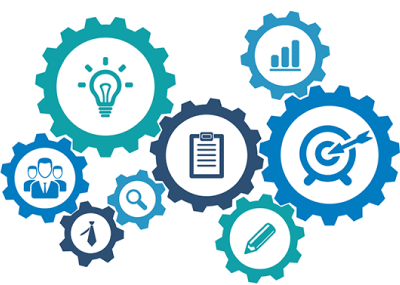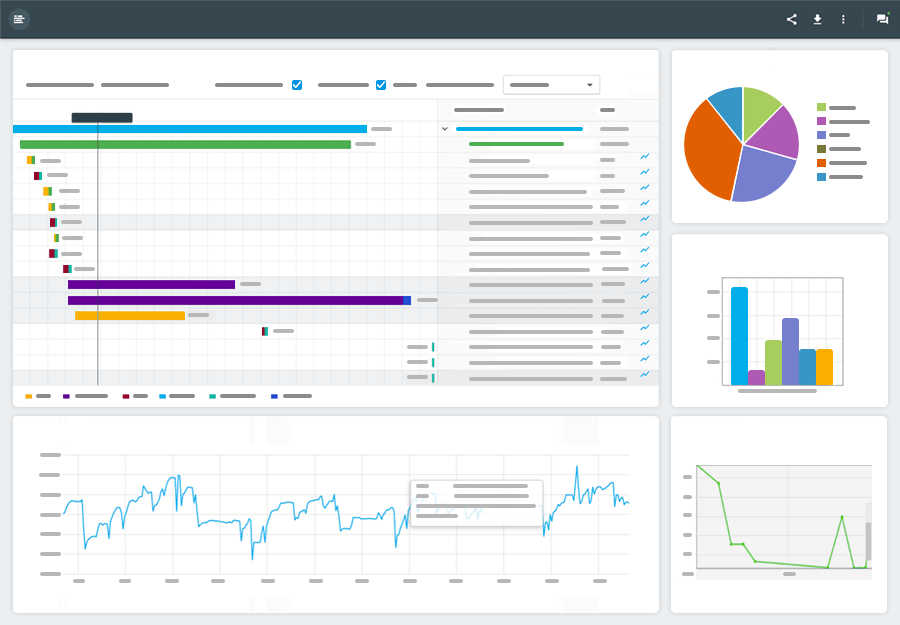Website Performance Optimization: A Complete Guide
If only we could install a magic plugin to speed up our websites. You’d be able to get your website loading more quickly than your competitors’ sites with almost no thought or effort. Alas, you’re going to have to work for it. But we can help you with the thinking part.
Why Website Performance is Important
Your customers are much too busy to wait around for your website to load. If you make them wait, they’ll give up and do something else. Google knows this, so they consider website performance when determining search rankings.

Where to Start
You could go through every single page on your site, following the recommendations listed below. But that can take a while and you may not get much bang for your buck. Performance testing software can help you discover where you need to focus your attention. A premium solution like LoadView or open source software like Apache JMeter will show you exactly where the problems are.
Great, so what kind of problems can you expect to find, and how can you fix them? We’re so glad you asked.
Upgrade Your Hosting
Shared web hosting may be inexpensive, but it’s slower than other solutions. A fast web host will go a long way when working towards website performance optimization.
Get Rid of Some Images
Pictures, graphics, gifs – they make the internet fun and accessible. But they can also take forever to load. Be thoughtful about the images you really need to keep. Product pictures are essential, but a graphic promoting a sale isn’t. Promote the sale with text, controlling the appearance with CSS or HTML, and it will load more quickly while still getting the job done.
Pre-shrink Your Images
We’ve all been guilty of downloading a large stock photo, and then uploading it to a CMS (Content Management System) with no changes. That means that every single time a user accesses the page with that image, their web browser has to resize the photo. That takes time.
Re-size your photos before uploading to the CMS instead, or use our webpage speed test and gain insight into website performance by using the free waterfall chart that is generated, showing the load time of each element on the page – including images, CSS files, javascript and more. Then automate the testing of troublesome pages with a free Dotcom-Monitor account.
Clean Up Your Code
Your developers know to keep their code concise for maximum performance. But as we edit and enhance pages, we may end up with code that’s not going to load as quickly as we’d like. You can clean things up and improve website performance by using CSS Sprites, combining your CSS and JS files, and avoiding 3rd party frameworks where possible.
Eliminate Excess Code
Anyone using your CMS isn’t even thinking about code. If they write directly in the CMS, there shouldn’t be a problem. But if they write in a word processing program, they cut and paste the copy without a second thought. Behind the scenes, that word processing program uses its own markup language to control the formatting.
That markup language ends up in your CMS when users copy and paste directly from a word processing program. It doesn’t affect how the page looks, but it does slow things down. Web browsers have to sift through all the code on a page when displaying it, and that includes the useless markup language.
Get your CMS users to copy and paste into a text editor to strip out the formatting. Then they can copy and paste from the text editor into the CMS.
Rethink Your Plugins
Plugins are convenient, but loading them takes time. Some of your plugins may be unnecessary. Others can be replaced with code that loads more quickly.
Enable Caching
When you allow visitors’ browsers to cache certain page elements (like images), the pages will load more quickly for those users when they return to your site.
Avoid Redirects
Redirects may be convenient, but they significantly slow down website performance. Only use them when you absolutely have to.
Fix Your Broken Links
404 Errors take up server resources that could be used for other purposes. And that slows down your website. Your load test may have uncovered some 404 errors, but there may be more. A service such as Online Broken Link Checker can check your entire site for broken links.
It’s Worth the Effort
This all sounds like a lot of work, and it is. But it’s absolutely worth the effort because you’re sure to see a reduction in page load times. And that leads to increased organic search traffic and improved conversion rates.


